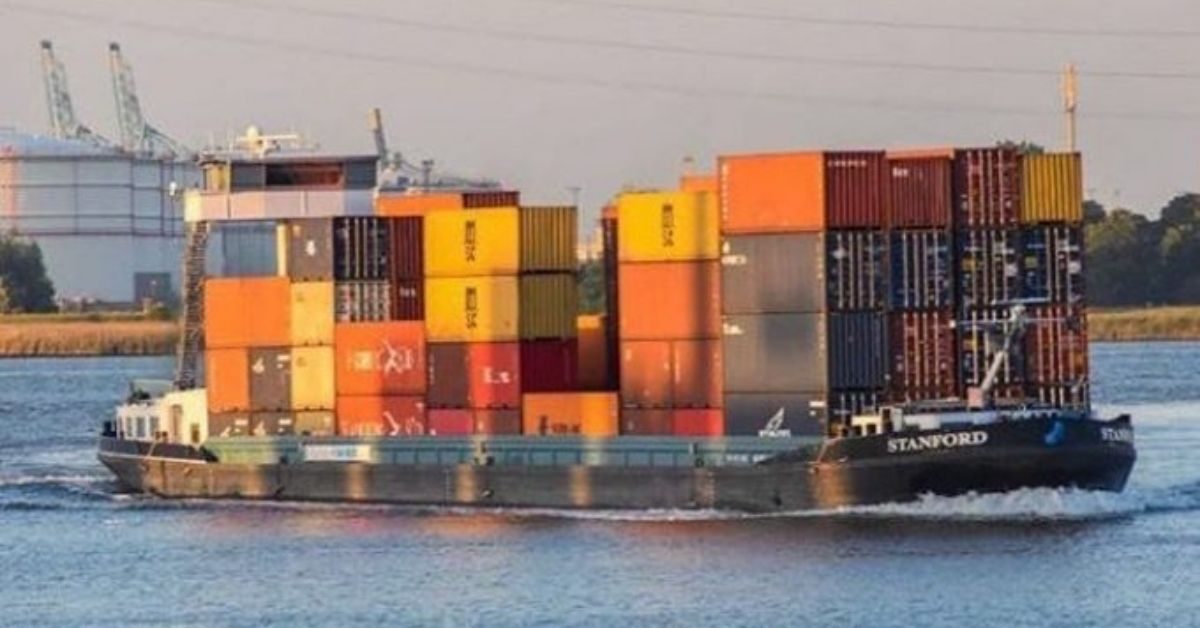Inland water cargo vessel operations in Bangladesh plunged in the past eight months as imports have fallen significantly amid global economic uncertainties stemming from the ongoing Russia-Ukraine war, according to industry insiders.
Letters of credit (LCs) worth a total of $45.51 billion were opened during the July-February months of the current fiscal year, down 23.45 per cent compared to the same period of 2021-22.
LC settlement fell 1.22 per cent year-on-year to $52.01 billion from $52.66 billion over the eight-month period, as per data from the Bangladesh Bank.
Of the total LCs issued at the time, those opened for importing consumer goods slumped by 14.53 per cent to $5.49 billion compared to $6.43 billion the year before.
Likewise, LC opening for intermediate goods fell 30.32 per cent year-on-year to $3.60 billion from $4.60 billion in FY22 while that of industrial raw materials tumbled 30.05 per cent to $15.55 billion from $22.24 billion.
“Cargo vessel operations have declined 30 per cent in the past eight months as a result of declining imports amid the restrictions on the opening LCs due to the ongoing US dollar shortage,” said Khandker Saiful Alam, proprietor of Max Corporation.
He said cargo vessel operations are mainly used to transport imported raw materials for various industries, which have been forced to curtail production for difficulties in opening LCs.
At present, there are around 2,000 cargo vessels in Bangladesh that use inland water routes for carrying goods, including those imported from neighbouring India.
So far, about Tk 6,000 crore has been invested in the country’s cargo vessel segment, generating around 25,000 jobs directly.
Regarding the slow business, Alam said this matter is not only affecting Bangladesh but also the global economy.
“Cargo vessel operations will remain slow until normalcy returns to the overall economy.”
Md Nurul Haque, proprietor of M/S Nurul Hoq Water Navigation, said the steep losses they suffered during the Covid-19 pandemic have been made worse by the implications of the Russia-Ukraine war.
“As Bangladesh is a riverine country, it is easier, cheaper and more environmentally friendly to carry goods from the main ports to river ports through inland waterways compared to the road network.”
Haque went on to say that while Russia’s invasion of Ukraine has had an impact on global supply chains, the ensuing sanctions and trade restrictions put in place have further affected cargo movement.
“We carry imported goods to various factories as per the orders from clearing and forwarding agents but importers are being unable to open LCs due to the US dollar crunch, which is impacting cargo vessel operations.”
Because of the US dollar shortage driven by escalated import bills against lower export and remittance receipts, the central bank has tightened rules to discourage the imports of non-essential and luxury items in order to save the foreign currency reserves from fast depletion.
Cargo vessel operations are in hot water also because of the recent hikes in fuel, wage and other costs amid rising inflation.
“Even the imports of industrial raw materials and food grains from India through river routes have reduced significantly,” Haque added.
Various shipping agents say container movement at Chattogram port shrank by more than 28 per cent in the eight months to February, when only 168,074 twenty-foot equivalent units (TEUs) were transported.
Mehrul Karim, chief executive officer of SR Shipping Ltd, a concern of Kabir Group of Industries, said oceangoing cargo vessel operations have declined due to the global economic crisis.
He said that shipping and cargo services in the country are mostly a one-way business that depends on imports. “So, the shipping industry will not witness any improvement if the local cargo trade does not change.”







